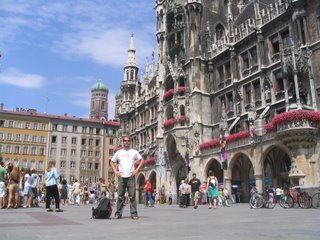 Our flight to Tbilisi, Georgia landed in the middle of the night. And so after 29 hours of traveling, which included a 10 hour stopover in Munich, 6 German sausages, 2 delicious airplane meals, and 17 glasses of orange juice consumed by Eleni, we arrived in the Tbilisi airport at 3:30 am. Much to our joy, there was a tired-looking man with a “Harvard University” sign waiting for us at the gate. His name was Zurad, and he negotiated with customs officials to get us in the Diplomat line to have our passports stamped. Already, we were feeling like royalty.
Our flight to Tbilisi, Georgia landed in the middle of the night. And so after 29 hours of traveling, which included a 10 hour stopover in Munich, 6 German sausages, 2 delicious airplane meals, and 17 glasses of orange juice consumed by Eleni, we arrived in the Tbilisi airport at 3:30 am. Much to our joy, there was a tired-looking man with a “Harvard University” sign waiting for us at the gate. His name was Zurad, and he negotiated with customs officials to get us in the Diplomat line to have our passports stamped. Already, we were feeling like royalty.That is, until we discovered that my green army rucksack hadn’t made it on the plane with us. Fortunately, it didn’t have any vital equipment inside (unless you consider things like “soap” or “deodorant” to be “vital”). After reporting the lost bag, we grabbed our equipment – a Cannon gL2 video camera, a tripod, 2 lavaliere microphones, a Sony handy-cam, and 60 mini-DV tapes – and hopped in a taxi for our hotel.
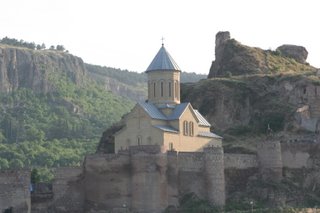
Tbilisi is a city with some real character. Fifteen years of independence from the Soviets have begun to put the city on course towards economic progress, but the predominant feel of the infrastructure is utilitarian and worn-down. That doesn’t mean it isn’t beautiful. Old stone walls line the Mtkavri river, which cuts through an “old town” marked by cobblestone streets, cement archways that lead to private homes, and gorgeous cathedrals. Last night, a Tuesday, we wandered into 2 different cathedrals that were bustling with activity: Priests in long, silk robes shook strings of gold bells and burnt incense, as women covered in head scarves sung prayers in beautiful soprano. Most Georgians are Orthodox Christians.
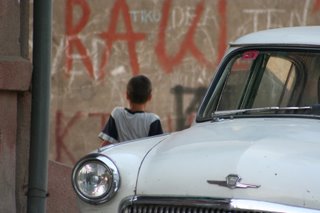
Before exploring the city and these churches, we had the chance to meet with Gela Bezhuasvili, our profile here in Tbilisi. Gela did an executive education program at the KSG a few years back, and started an MPA before being called by Georgia’s President to return at the Minister of Defense. He is now the Minister of Foreign affairs, and his demeanor is perfect for a diplomat: kind, welcoming, and downright jolly, he made us feel very at home in his office after we’d filmed him welcoming the newest Ambassador from Iran.
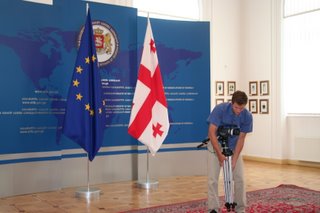
This will be an interesting week in Tbilisi. Georgia is a budding democracy in a critical region, the central caucuses. Nestled between the Black and Caspian Seas, Georgia contains a vital oil pipeline and represents the promise of post-cold war Eurasia. Georgia is taking its place in line to eventually join the EU: everywhere you see the Georgian flag, it is accompanied by the EU flag. Georgia’s crawl towards democracy was marked by the Rose Revolution in 2003, in which the current president, Michel Saakashvili, peacefully kicked out the country’s post-communist leader, Shevardnadze, with promises to fight corruption. The country’s interest in democracy has not been lost on the Bush Administration – the President’s visit here a few years ago is documented in T-shirts, posters, and even a street named called “George W. Bush Street.” Gela’s office was plastered in 8X10 photographs of his meetings with Bush, Rumsfeld, Condoleeza Rice, Collin Powell, and Senator Dick Lugar.
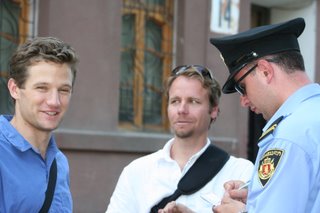
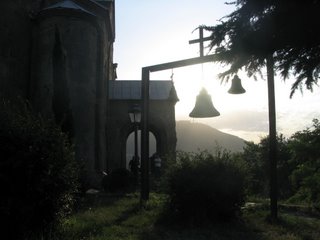

0 Comments:
Post a Comment
<< Home